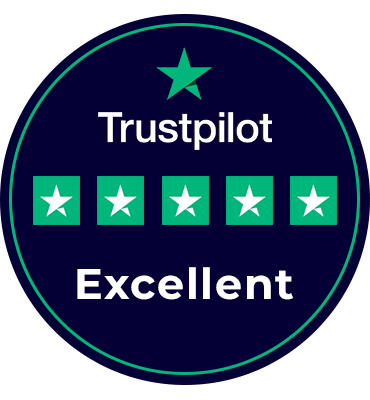Salesforce Development Implementation Process
Manish Kumawat
Last Updated on: 01 October 2025
The process of implementing Salesforce involves deploying its main product, the CRM (customer relationship
management) system, to consolidate all important business operations and communications. The most popular CRM
solution available, Salesforce can combine the features of the three most popular CRM product types:
collaborative, analytical, and operational. Let's have a detailed look at the implementation process of
Salesforce.
The Salesforce implementation process involves a strategic and structured approach to ensure seamless integration and optimal performance. The best process for implementing Salesforce applications, whether from the AppExchange or custom solutions, includes thorough planning and execution. An end-to-end implementation process for Salesforce developers focuses on customizing features, managing data migration, and ensuring smooth deployment.
For organizations looking to align two Salesforce systems, understanding how to implement two Salesforces to align processes is crucial for data consistency and workflow automation. Tools like Process Builder in Salesforce allow users to implement the right sales process with automation and streamlined approvals. The Salesforce approval process implementation guide helps configure workflows for decision-making and compliance.
Partnering with a Salesforce implementation partner for business processes can streamline the Salesforce implementation project process and enhance the Salesforce sales process implementation. Following a Salesforce implementation roadmap, including Salesforce implementation steps and phases, ensures smooth execution. A well-defined Salesforce CRM implementation project plan helps manage timelines and budgets effectively.
Understanding the Salesforce end-to-end implementation involves customizing the platform to meet business needs, from Salesforce software development to custom application development. Companies can leverage Salesforce implementation and deployment services for a smoother transition and post-implementation support. Knowing how long a Salesforce implementation takes and the associated Salesforce implementation cost is vital for resource planning.
By following a comprehensive Salesforce implementation strategy, businesses can achieve predictable revenue growth and enhanced customer experiences. With proper guidance from Salesforce implementation partners for the sales process, organizations can maximize the platform’s capabilities and drive long-term success.
The Salesforce implementation process is a structured approach designed to help businesses fully leverage the platform's capabilities. From Salesforce CRM implementation project planning to post-implementation support, each step is crucial to ensure seamless integration and enhanced productivity.
The best process for implementing Salesforce applications, whether through custom development or from the AppExchange, involves thorough planning, data migration, customization, and testing. An end-to-end implementation process for Salesforce developers focuses on aligning the platform with business goals, automating workflows, and improving customer engagement.
For organizations managing multiple Salesforce instances, understanding how to implement two Salesforces to align processes is essential. With tools like Process Builder in Salesforce, businesses can implement the right sales process and streamline approvals through the Salesforce approval process implementation guide. This not only improves efficiency but also ensures compliance with internal policies.
Collaborating with a Salesforce implementation partner for business processes can significantly enhance the Salesforce implementation project process and optimize the Salesforce sales process implementation. A detailed Salesforce implementation roadmap, including key Salesforce implementation steps and phases, is essential for managing resources and timelines effectively.
Businesses looking for Salesforce software development or custom application development can benefit from Salesforce implementation and deployment services. Understanding how long a Salesforce implementation takes and the Salesforce implementation cost helps in budgeting and resource allocation.
Moreover, a well-defined Salesforce implementation strategy allows businesses to achieve predictable revenue growth, streamline customer data management, and improve decision-making. With the right Salesforce implementation partners for the sales process, companies can overcome implementation challenges and maximize ROI.
Ultimately, a successful Salesforce end-to-end implementation not only transforms business operations but also enhances customer satisfaction and drives long-term growth.
Let’s See the Advantages of Salesforce Implementation
Sales Cloud, Service Cloud, and Marketing Cloud are just a few of the many native products that make up Salesforce's enormous infrastructure. These goods are all painstakingly made to specifically cater to the demands of professionals in marketing, sales, and customer service. As a result of using different Salesforce products, These are the outcomes that Salesforce customers have attained.
Businesses that use Salesforce Sales Cloud can:
- Quicken lead conversion, cutting down on time-to-close by as much as 30%,
- Attain a remarkable 160% annual growth in email click-through rates
- decrease click-through rates by 93% during the sales process.
Similarly, the implementation of Salesforce Service Cloud can:
- Reduce case processing time by 12%
- Save service agents' time by 30%
- remarkably raise customer satisfaction ratings by 70%.
By using Salesforce Marketing Cloud:
- you can increase lead segmentation by 30 times
- boost conversion rates by 16%
- accelerate marketing production time by 75%.
Renowned for its "click-not-code" methodology, the Salesforce Platform may expedite project delivery by four times and save an average of 80 developer hours. Salesforce also provides access to more than 4,000 other products through its AppExchange.
Three Different Ways to Implement Salesforce
Investing in a Salesforce installation partner who is familiar with your sector will pay maximum ROI, even though it is possible to implement Salesforce without employing a third-party company to support the project. Every phase of an implementation project, from planning and construction to transitioning and training, can be optimized by them. Three categories of Salesforce implementation initiatives are as follows:
1. In-house implementation
It's uncommon to fully implement Salesforce in-house. 90% of Salesforce customers, according to Salesforce, rely on implementation partners for apps and consulting. Nevertheless, on rare occasions, some smaller or mid-sized businesses and occasionally even larger ones will try to install Salesforce entirely internally. Finding professionals that support the in-house strategy will be difficult, though. If you adopt Salesforce without the assistance of an implementation partner or integrate third-party apps, it's quite likely that you will have to start from scratch and expend more time and energy creating ineffective systems than if you had made the appropriate investments in tools and support. You can build the customized system you require more quickly, more effectively, and with more foresight if you work with official implementation partners and third-party connectors than if you do it alone.
2. Implementation by Third-party partners
There are many Salesforce implementation partners and technologies available; some even offer end-to-end services, from assisting with CRM planning to training and even post-implementation and salesforce maintenance services. However, it can be a significant financial commitment, and the enormous challenge of identifying the ideal implementation partner for your specific needs and industry sometimes puts off teams that might otherwise seize the opportunity to receive professional assistance. It would take a lot of time and study to become proficient in all of the various ways that Salesforce may be used. This is what implementation partners offer to the project; they are Salesforce professionals with years of experience implementing the program.
3. Using a hybrid implementation strategy
If you are certain that you can manage a portion of the Salesforce implementation effectively, you may want to think about taking a hybrid strategy. For example, even though a lot of business organizations would hire an implementation partner to help with planning, construction, and data migration, they may already have a strong training department that is willing to handle the CRM training side. There isn't a single approach to implementing Salesforce; instead, you can pick a partner to help you achieve your objectives.
Stages of Salesforce Implementation
| Stages | Detailed process | |
|---|---|---|
| Step-1 | Assessment and Planning: |
|
| Step-2 | Design: |
|
| Step-3 | Development: |
|
| Step-4 | Testing: |
|
| Step-5 | Training: |
|
| Step-6 | Deployment: |
|
| Step-7 | User Adoption: |
|
| Step-8 | Maintenance and Support: |
|
Step-by-step Guide for an Effective Salesforce Implementation
Preparing for a Salesforce implementation requires a clear objective and a well-defined map that will get you there quickly. Stated differently, it is imperative to identify the end objective of implementing Salesforce and understand how to optimize the advantages of this customer relationship management tool. Let's take a confident approach to CRM deployment!
Step 1: Talk to company stakeholders about your main objectives
Talk about and explain daily problems and internal obstacles with your business's stakeholders. In this manner, you establish priorities, realistic system goals, and what will be achieved with CRM deployment.
Step 2: Keep track of everyday operations and internal procedures
Set aside some time to understand your teams' everyday responsibilities and procedures. Encourage every division in your organization to document their procedures and identify areas for development. It will assist in defining optimization zones and coordinating Salesforce solutions with your company's requirements.
Step 3: Establish a project budget and timeline.
Make sure your Salesforce project doesn't conflict with any other significant initiatives to avoid any resource shortages. Establish a schedule and schedule organizational meetings, testing, and important stages of implementation. Additionally, align your objectives and needs with a rough budget.
Step 4: Create a variety of project result scenarios
The size of the company, the volume of paperwork, and the requirement for customization all play a major role in estimating the cost of a Salesforce project. As a result, to account for implementation risks, you must create three scenarios: one optimistic, one pessimistic, and one most likely.
Step 5: Establish performance indicators
Establish quantifiable, precise goals to evaluate the success of your initial Salesforce implementation strategy. These goals could be as simple as a 40% reduction in case resolution time or a 30% increase in lead flow.
Step 6: Establish lines of communication
Achieving CRM implementation goals requires transparent and continuous teamwork. Therefore, the likelihood of a successful Salesforce implementation and adoption increases with the effectiveness of communication between implementers, internal teams, and stakeholders.
Step 7: Assign roles and identify stakeholders
Assigning core responsibilities is crucial to the Salesforce implementation process, especially with constrained resources. Typically, senior management, CRM users, sales, marketing teams, partners, clients, and IT specialists are among the parties involved in this process. The main stakeholder who will supervise the CRM project's planning, the internal overseer who will operate as the main point of contact, and the technical resource in charge of managing the integration of current systems or the switch to Salesforce must also be identified.
Step 8: Examine the original data
To facilitate the import process, make sure your data is correct and error-free before implementing Salesforce CRM. Establishing rules for naming standards and preventing data duplication is also important.
Step 9: Draft a strategy for change management
Be sure you have a thorough change management plan that extends beyond the initial launch date before starting the Salesforce deployment process.
Step 10: Investigate the Salesforce network
Finally, it's critical to comprehend the structure, appearance, and feel of Salesforce. A better understanding of the capabilities of the system and how to modify your business procedures will be from this.
Certain Difficulties in Implementing Salesforce
Before diving right into a Salesforce implementation project, you should also be aware of the difficulties associated with its deployment. Typical implementation issues for Salesforce consist of:
Cost: There are several expenses associated with using Salesforce, such as licensing, customization fees, training costs, and continuing maintenance and upkeep costs. Financial limitations or unforeseen costs may put a strain on resources and cause your implementation strategy to come to a complete standstill.
User Adoption:
Users used to their current systems and procedures are typically resistant to the introduction of a new platform such as Salesforce. It can be difficult to overcome this aversion to change, and your project may fail if your adoption strategy for Salesforce does not align with your implementation plan.Security and Compliance: Although Salesforce has strong security measures, data protection standards are always changing, and industry rules and compliance needs differ. You must closely establish security settings, impose access rules, and keep an eye on user activity during deployment to reduce security risks.
Data Migration and Integration: Moving data into Salesforce is never simple, and this is also true for other migrations. Since data is frequently dispersed across several systems or needs to be thoroughly cleaned to eliminate mistakes and inconsistencies, data migration is a challenging process. The accuracy and reliability of your Salesforce database may suffer from improper data movement. Problems with Salesforce integration can arise similarly to data migration.
Costs of Implementing Salesforce
What is the price of implementing Salesforce? This is a question that's on everyone's mind, and for good reason—the most important aspect of any Salesforce implementation project plan is the total cost. Let's talk about this element. When using Salesforce, budgeting can be a little difficult because there are certain costs you can forget to include in your total cost calculation. When installing Salesforce, give each component careful consideration. Such as:
- Number of Users: Each user's pricing is determined.
- Data Migration and Customization: The cost is mostly determined by the size and customization needs of the data set.
- Support: The goal of Salesforce post-implementation support is to eliminate any roadblocks and resolve problems.
- Services and Editions: There are four editions of each product, and each one needs to be ordered separately.
- Consultation: These expenses include the cost of putting Salesforce into use as well as related support expenses.
- Client Awareness: End-user training costs per person are also important.
Who will assist you in the Implementation of Salesforce?
If you are thinking about who will assist you in the implementation of Salesforce or who can make Salesforce implementation smooth for me, Here is the right choice in front of you. Fulminous Software has been performing Salesforce implementation for a long time and You can approach us to get on to right track of implementing Salesforce for your business.
HIRE A TOP SOFTWARE DEVELOPMENT COMPANY

 Verified
Expert in Software & Web App Engineering
Verified
Expert in Software & Web App Engineering
I am Manish Kumawat, co-founder of Fulminous Software, a top leading customized software design and development company with a global presence in the USA, Australia, UK, and Europe. Over the last 10+ years, I am designing and developing web applications, e-commerce online stores, and software solutions custom tailored according to business industries needs. Being an experienced entrepreneur and research professional my main vision is to enlighten business owners, and worldwide audiences to provide in-depth IT sector knowledge with latest IT trends to grow businesses online.
Partner with Top-Notch Web Application Development Company!
Discuss your Custom Application Requirements on info@fulminoussoftware.com or call us on +1-903 488 7170.
15 Days Risk-Free TrialRecommended Articles


